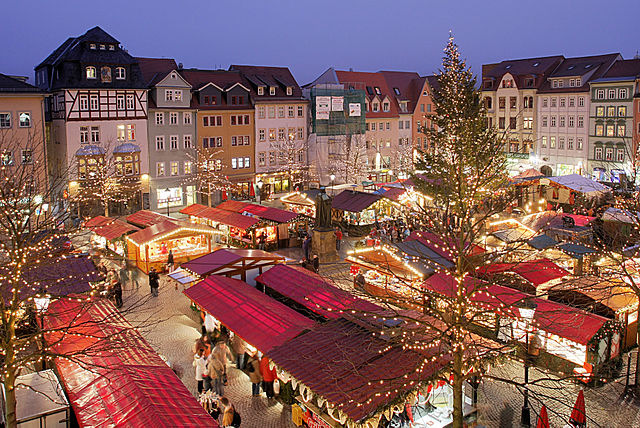Covering genealogy, family history, historical events and places, and anything else related!
Showing posts with label Austria. Show all posts
Showing posts with label Austria. Show all posts
Tuesday, January 24, 2017
Tuesday's Tip: Mapire
Mapire (http://mapire.eu/en/) provides access to historical maps of the Habsburg Empire. It contains maps of the First Military Survey (1763-1787), the Second Military Survey (1806-1869), the Third Military Survey (1869-1887), the Military Survey of Hungary (1941), the Austrian Netherlands (1764-1771), and the Hungarian Kingdom (1869-1887). There are cadastral maps from the nineteenth century, and maps of Europe in the eighteenth century, around 1850, and 1850-1890. The site also includes maps from other countries: Italy (nineteenth century), France (eighteenth century), Belgium (eighteenth century), Lower and Upper Alsace (1731), Scotland (nineteenth century), Ordnance Survey of England and Wales (about 1890), Southwest Germany (1797), Germany (nineteenth century), Finland (1918), and Norway (nineteenth century). There are maps of European cities: Vienna (eighteenth century), Budapest (eighteenth-twentieth century), Budapest (1944), London (eighteenth century), Moscow, Paris (1739), and Rome (1829). The Austrian Historic Town Atlas provides information about the history and urban development of sixty-four Austrian towns. It is possible to view the maps synchronized with each other or with today's maps. The maps can also be viewed in 3D. Copies of the maps (reproductions or digital copies) can be purchased. If you have ancestors from these areas, Mapire may be very helpful to you.
Monday, December 22, 2014
German Christmas Traditions
Weihnachtsmarkt (Christmas market) in Jena, Thuringia, Germany. 21 December 2007. Photo by Rene Schwietzke [CC BY-SA 2.0 (http://creativecommons.org/licenses/by-sa/2.0)]. Available at Flickr and Wikimedia Commons.
Christmas Day is known as Weihnachten in Germany and other German-speaking countries such as Austria and Switzerland. Many of our traditional Christmas customs originated in Germany and Austria.
The Christmas tree (Tannenbaum) originated in Germany in the Middle Ages. The first Christmas trees were decorated with fruits and nuts.
After the Protestant Reformation, Martin Luther established the tradition of the Christkind (Christ child) as the bringer of Christmas gifts, to discourage the giving of gifts at St. Nicholas' Day (December 6). Christmas Eve became the day for gift-giving. German children receive gifts from either the Christkind or the Weihnachtsmann (Christmas man, the German Santa Claus), depending on the region in which they live.
Christmas markets originated in Germany and Austria during the Middle Ages. These street markets would be open during the four weeks of Advent. Attractions at the markets include a Nativity scene and nutcrackers. Christmas ornaments, decorations, toys, handmade items, and food are sold.
The Christmas carol "Silent Night" originated in Austria. "Stille Nacht" was written in 1818. Joseph Mohr, a Catholic priest, had written a poem two years earlier, and he wanted it set to music so he could use it as a carol at Midnight Mass. His friend Franz Xaver Gruber wrote the music on 24 December 1818, in just a few hours.
References
Christmas customs and recipes
Christmas market
Christmas Traditions in Germany, Austria, Switzerland
Christkind
German Christmas traditions
The German Christmas Tree
Stille Nacht - Silent Night
A Symbol for Nuremberg: The Origin of the Christkind
Weihnachten
Christmas Day is known as Weihnachten in Germany and other German-speaking countries such as Austria and Switzerland. Many of our traditional Christmas customs originated in Germany and Austria.
The Christmas tree (Tannenbaum) originated in Germany in the Middle Ages. The first Christmas trees were decorated with fruits and nuts.
After the Protestant Reformation, Martin Luther established the tradition of the Christkind (Christ child) as the bringer of Christmas gifts, to discourage the giving of gifts at St. Nicholas' Day (December 6). Christmas Eve became the day for gift-giving. German children receive gifts from either the Christkind or the Weihnachtsmann (Christmas man, the German Santa Claus), depending on the region in which they live.
Christmas markets originated in Germany and Austria during the Middle Ages. These street markets would be open during the four weeks of Advent. Attractions at the markets include a Nativity scene and nutcrackers. Christmas ornaments, decorations, toys, handmade items, and food are sold.
The Christmas carol "Silent Night" originated in Austria. "Stille Nacht" was written in 1818. Joseph Mohr, a Catholic priest, had written a poem two years earlier, and he wanted it set to music so he could use it as a carol at Midnight Mass. His friend Franz Xaver Gruber wrote the music on 24 December 1818, in just a few hours.
References
Christmas customs and recipes
Christmas market
Christmas Traditions in Germany, Austria, Switzerland
Christkind
German Christmas traditions
The German Christmas Tree
Stille Nacht - Silent Night
A Symbol for Nuremberg: The Origin of the Christkind
Weihnachten
Subscribe to:
Posts (Atom)

